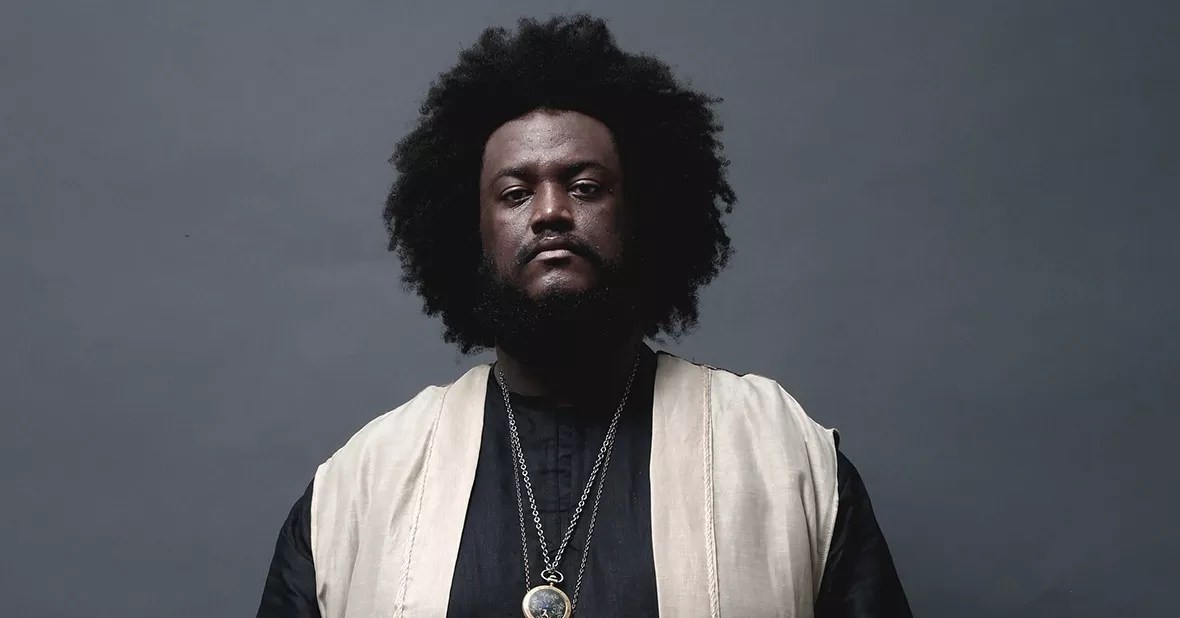
Courtesy of the artist

Audio By Carbonatix
It’s an easy trap to fall into: to assume that the voice you hear on a record matches what that person sounds like when they’re not spinning on your turntable. Listening to Kamasi Washington records, his “voice” barrels out of his tenor sax like a meteor burning up in the earth’s atmosphere. It’s a cosmic, ecstatic, keening voice, building in intensity like it’s trying to give God tinnitus.
Hearing that kind of epic music, one would imagine that the man behind it would be just as boisterous. Talking to Washington on the phone, his actual voice wouldn’t leave a persistent ring in God’s ear. The composer and bandleader talks softly and slowly, his voice relaxed and full of good humor. It’s as if the volume knob in his throat only goes up to three when he’s talking and he leaves all other sounds at levels four to 10 for his sax.
The subject of quiet comes up early in our conversation. “I have to get my mind to quiet down and stop thinking about anything,” Washington says. “And then, all of a sudden, these beautiful gems just start coming to me.”
Washington has been hailed as the face of 21st-century jazz, an avatar of the genre’s renewed cultural relevance and artistic vitality. Washington is the jazz-cat who can play sets at Coachella and log session time blowing his sax for Kendrick Lamar and Snoop Dogg. Along with fellow genre-hopping comrades Thundercat and Flying Lotus, Washington’s music serves as a reminder of jazz’s profound connection with modern music. It’s also a rebuke to the idea that jazz is a moribund, inert medium.
It’s like Q-Tip rapped on “Excursions” in 1991 about hip-hop: “My pops used to say, it reminded him of be-bop / I said, well daddy don’t you know that things go in cycles.” New things can still happen in jazz; old flavors can come back into style.
But while Washington’s work on records like Lamar’s To Pimp a Butterfly aligns him with the modern world, his sound and personal style connects him with an older tradition. Prone to sporting chunky rings, ceremonial garb, golden spaceman style suits, and a Gandalf-esque carved walking stick, Washington’s looks hark back to cosmic jazz pioneers like Sun Ra. And his celestial solo records, with their mix of gospel and aggressive saxs and spiritual yearning for peace and transcendence puts him in good company with Coltrane, Ayler, and Pharoah Sanders: all of them giants trying to raise a ladder to Heaven, one melody at a time.
“I do think these are songs are coming from somewhere beyond this physical world,” Washington says, reflecting on the spiritual dimension of his work. “I can’t say where that’s coming from, but they feel like they’re coming from somewhere … I feel like music has power, the way it can overtake people and bring them to a place of joy and happiness.”
While Washington’s music pitches itself toward the stars, it never loses sight of mankind’s earthly struggles. It’s why Washington can take a Bruce Lee homage like “Fists of Fury” and make it hit harder than an Enter The Dragon kick by having Patrice Quinn and Dwight Trible sing “We will no longer ask for justice / Instead we will take our retribution.”
With 2018’s Heaven and Earth, Washington and his band, The Next Step, take the cosmic jazz they perfected on The Epic and Harmony of Difference and open it up to other styles. Curtis Mayfield-style funk, sci-fi moods, and gospel intermingle with Washington’s jazz across both parts of the album. And the themed halves of the record neatly embody the struggle that comes up over and over again in Washington’s music: the urge to rise above all this shit and make a better world a reality.
“It’s about people waking up and realizing that they don’t have to do something,” Washington says. “If everyone helped each other, it would be a beautiful place. We can make a world, that we all want to live in, but we have to want it.”
It’s one of the reasons why he hid a secret bonus disc called The Choice in the gatefold editions of Heaven and Earth.
“I think we’re actually closer to making that world happen,” he says. “I feel like the numbers are so skewed: There’s so many more people who want equality and justice and peace for everyone than there are people who don’t. It’s just a matter of us realizing that and acting on it and not waiting for someone to tell us what to do.”
Kamasi Washington. Sunday, October 21, at the Marquee Theatre, 730 North Mill Avenue, Tempe; 480-829-0607; marqueetheatreaz.com. Tickets are $35 to $65 via Ticketweb.